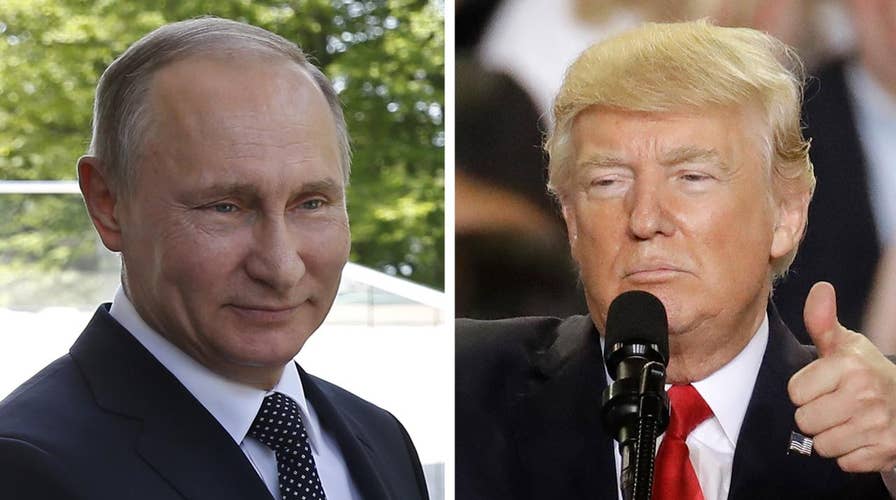Trump and Putin agree to work together on North Korea, Syria
The two world leaders also agreed to meet face-to-face at G20 Summit
Russian President Vladimir Putin on Wednesday said he had a “very good” conversation over the phone with President Trump, and that his U.S. counterpart agreed to a proposal to establish Syrian safe zones to protect civilians in the war-torn country.
Bloomberg reported that Putin made the remarks after he had a conversation with the Turkish leader Recep Erdogan in Sochi. The plan reportedly calls for four buffer zones and the areas would be patrolled by troops from Russia, Turkey and Iran.
The report pointed out that the White House released a statement saying there was a discussion about these safe zones, but it did not confirm Putin’s memory of the conversation.
“We spoke about this with Mr. Trump,” Putin said. “As far as I understood, the American administration supports these ideas.”
Trump, in the past, has called for the creation of these so-called safe zones.
Putin’s remarks come at a precarious moment in the relationship between Washington and Moscow. Russia wasted little time last month to assail Trump’s decision to launch missiles into Syria after reports of a gas attack. Moscow called the bombing an aggression, and suspended an agreement with the U.S. to avoid mid-air collisions over Syria.
U.S. Secretary of State Rex Tillerson said at the time that Russia was either complicit or “simply incompetent.”
Besides the two countries stance on how to approach the Syrian conflict, U.S. intelligence agencies said they have definitive evidence that Russia was behind the hacking of Democratic email accounts, with the aim of benefiting Donald Trump's campaign and harming his Democratic opponent, Hillary Clinton.
Putin has long denied such claims. On Tuesday, during a tense meeting with German Chancellor Angela Merkel, the Russian president was forced to, again, deny reports of Russian meddling in international elections.
Merkel said she was confident that Germany can weather any disinformation campaign targeting Germany's upcoming election. Asked about the threat during the news conference, she cited two recent incidents of what she described as "gross misinformation."
In one instance, Russian media and the foreign minister claimed that a 13-year-old girl of Russian origin had been kidnapped and raped by asylum-seekers in Berlin, and that German authorities were covering up the case. Police later determined the girl had made up the kidnapping, though a man in his 20s was charged with sexual abuse of a minor because she was below the age of consent.
Merkel said Germany would take "decisive measures" if it believed there was foreign meddling in the election, adding it was well-known that "hybrid warfare plays a role in Russia's military doctrine."
The Associated Press contributed to this report





